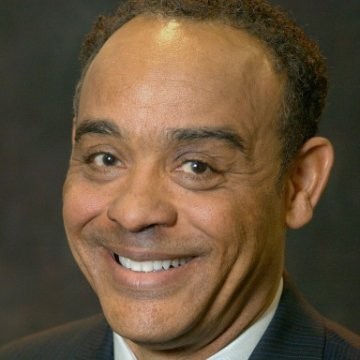By John Grace
Contributing Columnist
It’s really interesting how emotionally attached families are to their homes. All of those fantastic stories and memories are so heartwarming over the years.
But the problem is that most homeowners allow emotions to overrule good business decisions as they count that equity as cash in their pocket. When in fact, only cash is king. What can you say about equity?
Crickets. According to me, this time is unlike anything you have seen in your lifetime.
To begin with, and being an optimist, everyone is going to heaven. In spite of price craziness, eventually, the supply and demand of homes take hold.
Since the average age of death in America is about 76, per the U.S. Census Bureau, and the age that the majority of Americans sell their home is 78, and the number of homes remains the same, it stands to reason that people dying will outpace people buying homes.
This could mean that while people are going to heaven, prices and rents are going to hell. Father Time and Mother Nature hold the genuine trump cards.
Let go of believing it’s about location, inventory or interest rates. Grasp the facts that Americans buy their first home at 31, their biggest at 41 and sell at 78. Pay attention to the truth that the largest and wealthiest segment of our population is comprised of Baby Boomers, 24% of our population, born between 1946 and 1964 who turn 59-77 this year. Right before your very eyes, here comes a serious one-two punch.
As I have shared, in 2000 the median home value in the U.S. was $119,600, per the U.S. Census Bureau. From the same source, we can see that home prices may have topped last year at $428,000. That’s the good news for homeowners.
The bad news is that the average household income only increased by 1.6 times for the same time period, per Dent Research. That is the canary in the coalmine of a completely unsustainable situation.
San Francisco is an example of what’s going on.
“In the first 10 months of Housing Bust 2 (now), the median price plunged a lot faster than in the first 10 months of Housing Bust 1 (2007-11),” according to Wolf Richter in The Wolf Street. In the nine-county Bay Area, the median price of single-family homes declined by 8% in January from December, by 17% year-over-year, and by 35%, or by $540,000 in the 10 months from March 2022 at $1.54 million to $1 million, per the California Association of Realtors.
“Sales of single-family homes in the Bay Area plunged by 37% in January compared to January last year. The sales plunge has been in the same year-over-year range for months,” Richter said.
We all know and we often do, buy stocks today and sell them tomorrow. But when it comes to determining what to do with that emotionally charged real estate, homeowners often take two years to decide what to do, according to Dent Research.
Here’s an important question for you. How can you prepare to catch the next wave? People are so comfortable that they tell themselves that their home or their area is so special, prices just cannot go down more than imagined. Please remember that no one was prepared for the last crash where home prices dropped 34%, according to Dent Research. Because this bubble is bigger today, Harry Dent expects home prices to drop 50% on average in this second housing bust and take much longer than the last time to recover.
“San Francisco is now an example of one of those special cities where real estate has bubbled more than average but also is very likely to burst more than average this time,” Dent said. “The late 2007 to early 2009 real estate crash was by 60%, with prices falling from nearly $800,000 down to $320,000. This time, prices start at $1.55 million and they could fall by as much as 80% if they go to the 2012 average price (when the bubble began), $325,000.
“They have already fallen 36%, with more, clearly, to go,” he added.
Dent goes on to say, “For a reality check on your home, look up what it was worth in 2012. You likely will be shocked. Now is the time to sell if you are going to” and if this argument makes sense to you, your best bet may be to avoid buying another home at these nose bleed levels.
Instead, you might like to keep your cash powder dry so that you are better prepared than most to catch the next opportunity.
John Grace is a registered representative with LPL Financial. His On the Money column runs monthly in The Wave. The opinions expressed here are for general information only and are not intended to provide specific advice or recommendations for any individual.











